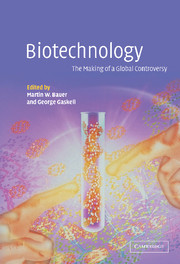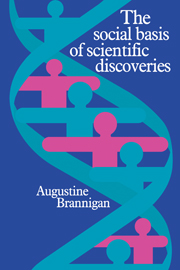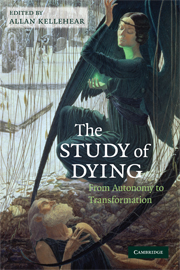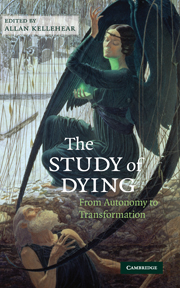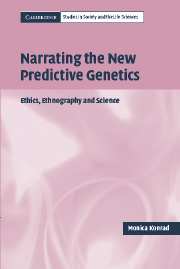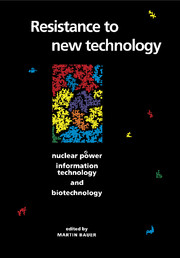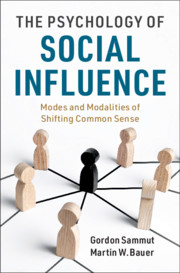Biotechnology - the Making of a Global Controversy
Biotechnology is one of the fastest-growing areas of scientific, technical and industrial innovation and one of the most controversial. As developments have occurred such as genetic test therapies and the breeding of genetically modified food crops, so the public debates have become more heated and grave concerns have been expressed about access to genetic information, labelling of genetically modified foods and human and animal cloning. Across Europe, public opinion has become a crucial factor in the ability of governments and biotech industries to exploit the new technology. This 2002 book presents the results of a unique cross-national and cross-disciplinary study of the relationship between the development of new biotechnology and public perception, media coverage and policy formulation. It outlines a conceptual framework for understanding these issues and contains a number of empirical studies including studies of the international controversies surrounding the cloning of Dolly the sheep and GM Soya.
- Examines the background to the current controversies over the application of modern biotechnology
- Analyses the relationship between public opinion, the media and policy formulation
- Brings together an interdisciplinary team from sociology, policy analysis, social psychology, media science and public understanding of science
Reviews & endorsements
'… this is a very readable work, combining commentary with detailed analysis of data … this book will be useful not only to policy-makers, but also to those involved in dialogue with the public.' The Times Higher Education Supplement
Product details
September 2002Paperback
9780521774390
430 pages
231 × 155 × 26 mm
0.57kg
9 b/w illus. 30 tables
Available
Table of Contents
- Introduction:
- 1. Understanding the public sphere of biotechnology Martin W. Bauer and George Gaskell
- Part I. The Framing of a New Technology:
- 1973–96:
- 2. Promise, problems and proxies:
- 25 years of European debate and regulation Helen Torgersen, Jurgen Hampel, Marie-Louise von Bergmann-Winberg, Eleanor Bridgman, John Durant, Edna Einsiedel, Bjorn Fjaestad, George Gaskell, Petra Grabner, Petra Hieber, Erling Jelsoe, Jesper Lassen, Athena Marouda-Chatjoulis, Torben Nielsen, Timo Rusanen, Georges Sakellaris, Franz Seifert, Carla Smink, Tomasz Twardowski and Merci Wambui Kamara
- 3. Media coverage: trends and dynamics in the opinion-leading press Jan M. Gutteling, Anna Olofsson, Bjorn Fjaestad, Matthias Kohring, Alexander Goerke, Martin W. Bauer and Timo Rusanen. With the further co-operation of Agnes Allansdottir, Anne Berthomier, Suzanne de Cheveigne, Helle Frederiksen, George Gaskell, Martina Leonarz, Miltos Liakopoulos, Arne Thing Mortensen, Andrezj Przestalski, Georg Ruhrmann, Maria Rusanen, Michael Schanne, Franz Seifert, Angeliki Stathopoulou and Wolfgang Wagner
- 4. The institutions of bioethics: a comparison of Denmark, France, Italy and Greece Jean-Christophe Galloux, Arne Thing Mortensen, Suzanne de Cheveigne, Agnes Allansdottir, Aigli Chatjouli, Georges Sakellaris
- 5. Controversy, mass media coverage and public knowledge Martin W. Bauer and Heinz Bonfadelli
- Part II. Public Representations in 1996: Structures and Functions:
- 6. Traditional blue and modern green resistance: the complexities of scepticism Torben Hviid Nielsen, Erling Jelsoe and Susanna Olsson
- 7. The structures of public perceptions Cees Midden, Daniel Boy, Edna Einsiedel, Bjorn Fjaestad, George Gaskell, Miltos Liakopoulos, Jon Miller, Susanna Olsson and Wolfgang Wagner
- 8. Regional culture - contextualising the knowledge deficit model Nicholas C. Allum, Daniel Boy and Martin Bauer
- 9. Pandora's genes - images of gene technology and nature Wolfgang Werner, Nicole Kronberger, Nicholas C. Allum, Suzanne de Cheveigne, Carmen Diego, George Gaskell, Marcus Heinssen, Cees Midden, Marianne Odegaard, Susanna Olsson, Bianca Rizzo, Timo Rusanen and Angeliki Stathopoulou
- Part III. The Watershed Years 1996/7: Two Case Studies:
- 10. Testing times - the reception of Round-Up Ready soya in Europe Jesper Lassen, Agnes Allansdottir, Miltos Liakopoulos, Arne Thing Mortensen and Anna Olofsson
- 11. Brave new sheep - the clone named Dolly Edna Einsiedel, Agnes Allansdottir, Nicholas C. Allum, Martin W. Bauer, Anne Berthomier, Aigli Chatjouli, Suzanne de Cheveigne, Ronnie Downey, Jan M. Gutteling, Matthias Kohring, Martina Leonarz, Frederica Manzoli, Anna Olofsson, Andrezj Przestalski, Timo Rusanen, Franz Seifert, Angeliki Stathopoulou and Wolfgang Wagner
- Part IV. The Transatlantic Puzzle:
- 12. Worlds apart? Public opinion in Europe and the USA George Gaskell, Paul Thompson and Nicholas C. Allum
- Part V. Towards a Social Theory of New Technology:
- 13. The biotechnology movement: assimilating and accommodating the public sphere Martin W. Bauer and George Gaskell.

